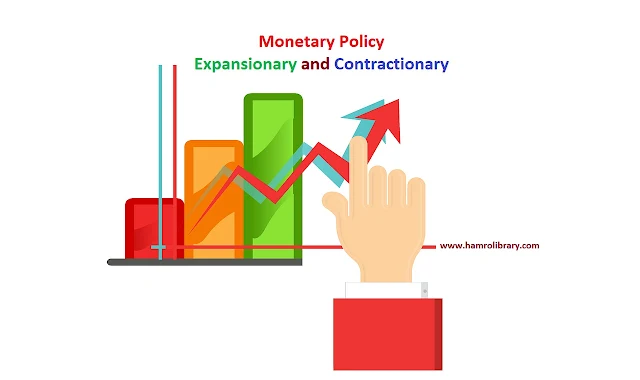Meaning of Monetary Policy
Monetary policy is defined as the policy formulated by the central bank of a country to control and regulate the money supply. In other words, monetary policy is concerned with the management of the money supply in an economy. Monetary policy is formulated and implemented by the central bank. Since 'Nepal Rastra Bank' is the Central Bank of Nepal, it formulates and implements monetary policy in Nepal. The definition of monetary policy given by notable economists are as follows:According to N.G. Mankiw, "Monetary policy is the setting of the money supply by policymakers in the central bank."
In the view of Edward Shapiro, "Monetary policy is concerned with government's attempt to provide more stable economy by regulating the rate of growth of the money supply."
Monetary policy is one of the important macroeconomic policies. It is practiced by the monetary authority or central bank to achieve predetermined objectives through the changes in money supply, credit, and interest rate in the economy. The main objectives of monetary policy are as follows:
- Generate employment opportunities
- Price stability (controlling inflation and deflation)
- Achieve a higher economic growth rate
- Achieve a favorable balance of payment
- Exchange rate stability
- Reduce trade deficit
- Reduce poverty and economic inequality
- Development of banking and financial institutions.
Types of monetary policy
There are two types of monetary policies which are explained as follows:Expansionary monetary policy:
An expansionary monetary policy is an action taken by the central bank to increase the money supply. The central bank can use its tools, individually or collectively to expand the supply of money. The central bank can purchase treasury bills and bonds in the open market, decrease the bank rate or discount rate and reduce the required reserve ratio to increase the money supply in the economy. The expansionary monetary policy is formulated during the economic depression and deflationary period.
Contractionary monetary policy:
Contractionary monetary policy is the opposite of expansionary monetary policy. It is an action taken by the central bank to decrease the money supply. Central Bank can use its tools, individually or collectively to decrease the supply of money. The central bank can sell treasury bills and bonds in the open market, increase the bank rate or discount rate and increase the required reserve ratio to decrease the money supply in the economy. The contractionary monetary policy is formulated during the inflationary period.


.jpeg)
0 Comments
If this article has helped you, please leave a comment.